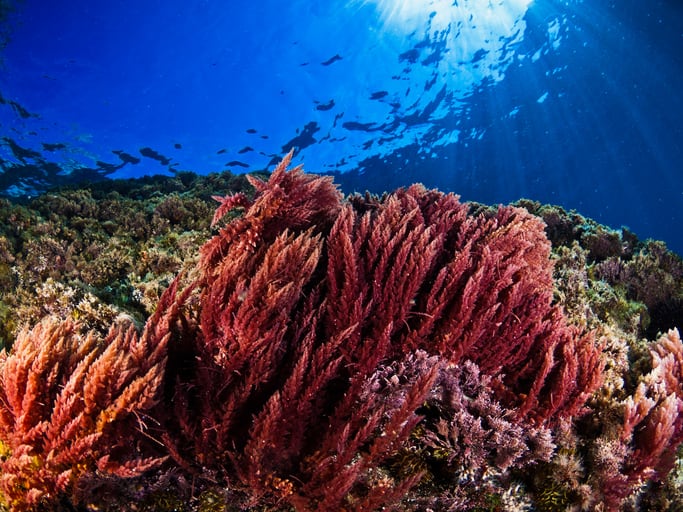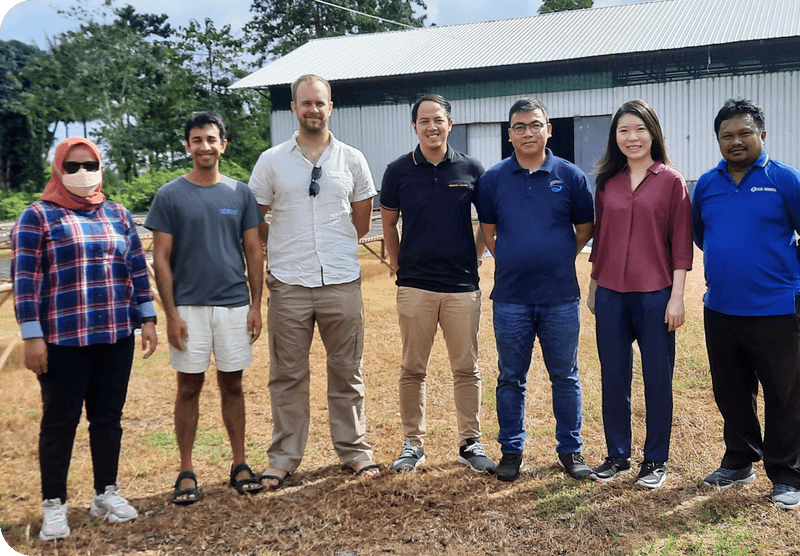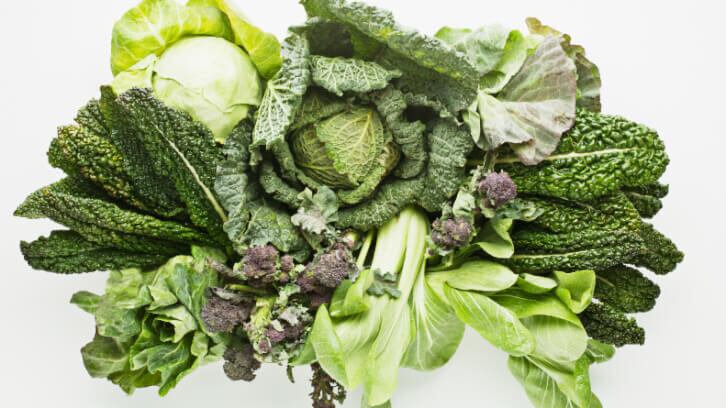The company, which grows Asparagopsis in its own land-based systems, intends to fight climate change by developing gigatonne-scale greenhouse gas (GHG) mitigation solutions for industries and governments worldwide.
It focuses heavily on methane — one of the most potent GHGs — as it has found that the best way to maximise positive climate impact is through “aggressive methane mitigation”. At the same time, research has shown that even small amounts of Asparagopsis can prevent up to 90% of enteric methane from cattle, a major source of global methane emissions.
COGS in the climate machine
Though the ocean is seaweed’s natural habitat, it is not feasible to grow Asparagopsis in the ocean in any profitable — and thus, scalable — manner. As such, CH4 Global instead grows it at scale in proprietary land-based systems it has developed to reduce costs and bring uniformity to product specifications. It also prioritises pricing and affordability for seaweed farmers.
Speaking to AgTechNavigator, Meller said: “Our goal has always been climate change impact at scale, with urgency. Given this, we recognised very early on that the key factor to achieve scale has been cost of goods sold or COGS. This is an all-in cost for production for all factors. If you can lower COGS enough, then you have the ability to sell to the market, where the farmer will have the ability to generate value that not only covers their costs but puts money in their pocket.
“This comes from a very modest increase in farm gate price for low-carbon beef, a modest cost savings in feed and value from the carbon reduced. There is no need for subsidies if you actually do the work to bring costs down.
“We set a goal to bring COGS down tenfold, versus all other growing and processing approaches practised today. It took us 18 months to get there, file IP and validate the approaches. That's what we are now building into the world's first scaled commercial production facility.”
He further said CH4 Global had already seen the impact its systems were designed to achieve — COGS low enough to create net value for farmers and ensure that large-scale infrastructure lenders see a path for very large-scale project-lending to meet demand.
“Our COGS are now much lower than others’ in the Asparagopsis space, and in line with synthetic approaches that have lower efficacy. Controlled growing conditions enable the ability to manage bio-active levels carefully, much more than exists for wild or ocean-grown seaweed in both amount and consistency.
“All these factors are taken into account with COGS, while also ensuring the product meets a tightly controlled QA release specification to ensure customers are provided with a product that delivers each and every time according to the claims made for it,” he said.
Collaboration in Korea
Asked about CH4 Global’s recently announced strategic partnership with Lotte International, Meller said it had come about due to a desire for a major MNC and country to make a difference. The purpose of the partnership to bring CH4 Global’s ruminant enteric methane-reduction technology, Methane Tamer™, to South Korea. It also entails the initial supply to Lotte-owned Australian feedlot, Sandalwood, for up to 7,000 head of cattle.
As CH4 Global’s exclusive partner in South Korea, Lotte will provide up to four million cattle with the enteric methane-reducing feed supplement. According to CH4 Global, the climate impact from reduced emissions as a result of this provision would be as much as 10 million metric tonnes. A conservative estimate would be seven million metric tonnes of CO2-equivalent annually.
In consultation with the country’s government, both companies have been advancing studies for regulatory approval in South Korea while they prepare to launch in 2025, with Lotte leading commercialization and CH4 Global manufacturing and supply product.
Meller told ATN, “There is an incredible amount of talk today and very little action that is both meaningful and impactful at scale. CH4 Global is incredibly proud of this collaboration that drives the true benefits of scale and impact. This is the first in a series of major announcements on scale and impact that CH4 Global will have into 2024.”
Opportunities, applications and restoration
Meller believes the biggest opportunities in seaweed usage development at the moment can be found within controlled production systems, especially for higher value ingredients in a variety of sectors. These include cosmetics, pharmaceuticals, and specialty foods, feeds and ingredients, wherein demand for more sustainable products and ingredients is driving usage.
In terms of agtech applications in seaweed cultivation and production, he said, “CH4 Global has recreated end-to-end production, from growing, harvesting, processing, formulation and packaging into cost-effective products for market use.
“This is both IP-protected and driven by technological innovations and the same will occur in other areas of these markets. For ocean-based cultivation, there are new developments in harvesting and processing that drive adoption of more sustainable ingredients from various seaweeds.”
He also endorses land-based seaweed farming as a key driver of sustainability in the sector, attributing this to its ability to be grown at scale in controlled environments without affecting natural ocean environments.
Touching on seaweed farming’s role in restorative aquaculture and carbon capture, he said the current approach for the latter “should be steered away from”, adding, “The products must stand by themselves as sustainable products with a low carbon footprint; this avoids double-counting carbon.”
He went on to say that CH4 Global’s approach would not affect marine environment restoration, emphasising the urgent need to “stop practices that negatively impact healthy ecosystems in the ocean” and calling this “the essence of sustainability”.
Weathering a sea of challenges
When it comes to the challenges Meller has observed in the area of Asparagopsis cultivation, he reveals that they are largely similar to those seen with other seaweeds, as well as for finfish and shellfish.
He said, “The major factors are the conditions for growth, with factors like salinity, temperature, pH, nutrients, light and others needing to be optimised for the specific species. Those conditions change in the size and shape of land-based vessels, so that needs to be managed to ensure stable, reliable and consistent growth, all while ensuring you have a detailed understanding of the lifecycle of the organism.
“What's somewhat unique for Asparagopsis is that while bio-mass growth is important, it is crucial to understand the levels of key bio-actives in Asparagopsis. So, a deep understanding of growth rate coupled, with an understanding of what drives bio-active increases, are key.”
With regards to how CH4 Global intends to address these challenges, Meller said, “Overcoming all these challenges requires a deep level of science — and not necessarily only in aquatic biology or specifically, phycology. That’s an important factor but so is deep knowledge in engineering, kinetics, water flow and other areas of science that come into the equation and enable us to manage and overcome these challenges.”




